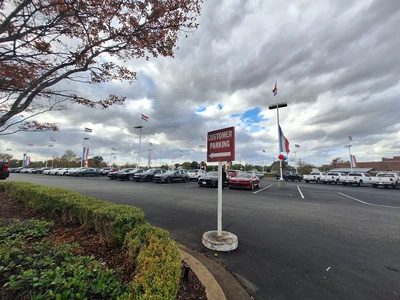When you're in the market for a car, the decision between buying new and opting for a certified pre-owned (CPO) vehicle can be challenging. Both options have their merits and drawbacks, and the best choice depends on your preferences, budget, and priorities. In this blog, we'll explore the pros and cons of each to help you make an informed decision.
What is a Certified Pre-Owned Car?
Before diving into the comparisons, it's crucial to understand what a certified pre-owned car is. A CPO car is a used vehicle that has been inspected, refurbished, and certified by a manufacturer or other certifying authority. These cars usually come with an extended warranty beyond the original factory warranty and often include some of the benefits of buying new.
Pros of Buying a New Car
Latest Technology and Features
New cars are equipped with the latest technology and features. This includes advanced safety features, cutting-edge infotainment systems, and the newest innovations in fuel efficiency and performance. If staying current with technology and features is important to you, a new car might be the best fit.
Full Warranty
New cars come with a full manufacturer's warranty, covering most parts and repairs that might be needed for at least the first three years or 36,000 miles. This can provide significant peace of mind.
Customization
Buying new often means you can customize your vehicle to your liking. From the color to the trim and optional features, you can often build your car to your exact specifications.
Cons of Buying a New Car
Higher Cost
New cars are generally more expensive not only in terms of sticker price but also because they depreciate faster. A new car can lose 20-30% of its value in the first year alone.
Higher Insurance Costs
Typically, new cars are more costly to insure. Their higher value and repair costs can lead to higher insurance premiums.
Pros of Buying a Certified Pre-Owned Car
Cost Savings
CPO vehicles are usually less expensive than their new counterparts. Since the car has already depreciated, you're not bearing the brunt of the depreciation cost, which can make a CPO a better value.
Extended Warranty and Inspection
CPO cars come with an extended warranty and have passed a manufacturer’s inspection process. This means they are generally in excellent condition and the extended warranty offers a similar level of security as buying new.
Lower Insurance Costs
Since they are worth less than a brand-new model, certified pre-owned cars tend to be cheaper to insure.
Cons of Buying a Certified Pre-Owned Car
Higher Interest Rates
Financing rates for CPO cars can be higher than those for new cars. Dealers often offer promotional financing rates for new vehicles that are not usually available for used cars, including CPOs.
Limited Selection
While you can choose from various options when buying new, the selection of CPO vehicles depends on what others have chosen to lease or trade-in. This can limit your options in terms of features, color, and model.
Potential for Previous Use Issues
Even with a thorough inspection and refurbishment process, a CPO car had a previous life which might include hidden issues that are not apparent despite the inspection.
Whether you should buy a new or certified pre-owned car depends on your specific needs and financial situation. If you value the latest features, customization, and full warranty coverage, a new car might be the way to go. On the other hand, if you're looking to save money and get a car that's almost as good as new, with some degree of warranty protection, a certified pre-owned vehicle could be the perfect fit. Weigh these pros and cons carefully to choose the best option for you.
Faith Dewitt
(662) 408-2366
Homer Skelton Ford












